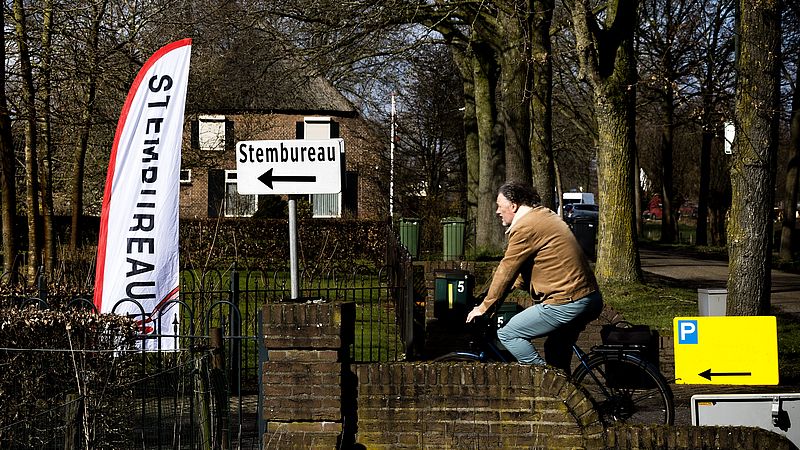In the Netherlands we have a national voter register. We do not elect MPs in districts, as is the case in England, for example. Pieter Omtzigt argues that we would be better represented if we had such a system. But is that also true?
Today and tomorrow there will be a parliamentary debate in which Prime Minister Mark Rutte and Foreign Minister Hans Vijlbrief will have to account for how they will fulfill the promises made to Groningen residents affected by the earthquake. And the Groningers think it’s time. For years they didn’t feel seen or heard.
If something hits the area
Last night, MP Pieter Omtzigt discussed the debate on gas extraction in Groningen at Jinek’s desk. According to him, our political system is one of the reasons why the interests of the people of Groningen have been ignored for so long. “We are the only country in Europe that has a national register. “All other countries have constituencies,” he said.
“And if something happens in your constituency that essentially affects voters, it doesn’t matter whether you’re in the opposition or the coalition. Then you stand up and say: ‘It can’t go on like this’. Even if the election is the first election. minister of your own skin color,’ continued Omtzigt. In doing this, he suggested that the opinions of Groningen citizens could be heard more quickly if we had electoral districts.
Different systems
It is not true that the Netherlands is the only country that has a national voter register. “Slovakia also has this in the European Union. And Serbia also has this outside the European Union. But this is extraordinary,” said political science professor Tom Louwerse of Leiden University.
“Most countries have district representation, where there are lists in districts or people can vote for individual candidates in districts,” Louwerse said. Then it varies from country to country, how strong the system is.
Number of votes in your area
England has a strong district system. “The person with the most votes in a district will win. But he doesn’t have to get a majority of votes,” Louwerse said. For example, UKIP, the party of Brexiteer Nigel Farage, got just over 3 million votes and just 1 seat in 2015. Labor got 9 million votes, but just over 230 seats in parliament.
There is proportional representation in most European countries. “So the party that gets around 40 percent of the vote will get around 40 percent of the seats, but the filling of those seats will then be partly done in the regions.” You can see this, for example, in Germany and the Scandinavian countries. “So proportionality is combined with district.”
What’s better?
There are so many technical aspects of the system in Europe. The question is whether different regions can be better represented in the district system. According to senior lecturer Louwerse, this is a broader problem. “Because even in countries that have districts, like the UK, you hear complaints about too much focus on the capital.”
Apart from that, Louwerse said that in the Dutch system there are also people from regions who play national politics. “It’s not like there haven’t been Groningen residents in parliament over the years. And we also see in the Netherlands that MPs ask more questions and pay more attention to their speeches in the region where they live.
Ireland
But regional impacts are of course generally stronger in district systems, Louwerse observes. “But this can also be a disadvantage. In a strong district system, a politician may only look at the interests of his area. And not seeing the general picture.”
Louwerse himself noticed this in Ireland, where he worked. “There, MPs’ ties with their regions are very strong, to the point where there is talk of clientelism. That they only defend their own voters in their own area. But of course you also have to think about the public interest. have to find a balance.”
info
Broadcaster
The ‘Fact or Fiction?’ now you can listen to it too as a podcast.
To ask? Ask them!
Do you have questions or want answers? Send us a message here in our chat.

“Hipster-friendly creator. Music guru. Proud student. Bacon buff. Avid web lover. Social media specialist. Gamer.”


/s3/static.nrc.nl/wp-content/uploads/2024/04/web-2404buibootmigrant.jpg)




